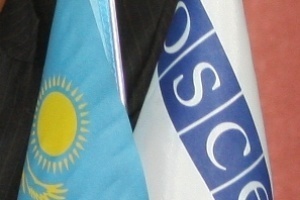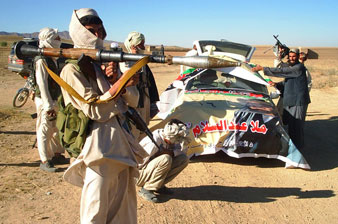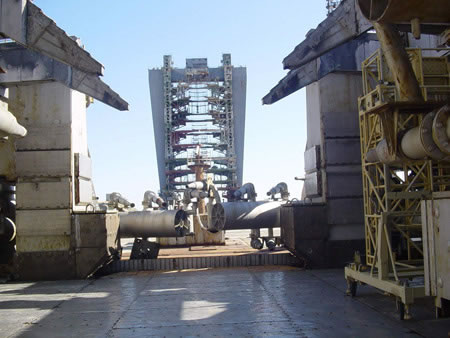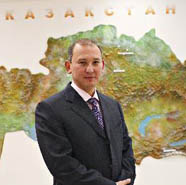Human rights groups have expressed concern that Kazakhstan will take the chair of the Organisation for Security and Cooperation in Europe (OSCE) next month.
Human rights groups have expressed concern that Kazakhstan will take the chair of the Organisation for Security and Cooperation in Europe (OSCE) next month.
Energy-rich Kazakhstan has been a magnet for Central Asian migrant workers for much of the last decade. Many make a decent living, but for some the dream turns into a nightmare of shakedowns by police, stolen wages, poor conditions and, in the worst cases, modern-day slavery.
 When the Organization for Security and Cooperation in Europe finally decided to designate Kazakhstan as the chair of the group in 2010, the general hope in Vienna was that the responsibility would encourage Astana to liberalize its political system. But with just weeks to go before Kazakhstan's assumes the helm at the OSCE, those early hopes are proving illusory, leading Kazakhstani civil society activists say.
When the Organization for Security and Cooperation in Europe finally decided to designate Kazakhstan as the chair of the group in 2010, the general hope in Vienna was that the responsibility would encourage Astana to liberalize its political system. But with just weeks to go before Kazakhstan's assumes the helm at the OSCE, those early hopes are proving illusory, leading Kazakhstani civil society activists say.
 On October 29, 2001, while the Taliban's rule over Afghanistan was under assault, the regime's ambassador in Islamabad gave a chaotic press conference in front of several dozen reporters sitting on the grass. On the Taliban diplomat's right sat his interpreter, Ahmad Rateb Popal, a man with an imposing presence. Like the ambassador, Popal wore a black turban, and he had a huge bushy beard. He had a black patch over his right eye socket, a prosthetic left arm and a deformed right hand, the result of injuries from an explosives mishap during an old operation against the Soviets in Kabul.
On October 29, 2001, while the Taliban's rule over Afghanistan was under assault, the regime's ambassador in Islamabad gave a chaotic press conference in front of several dozen reporters sitting on the grass. On the Taliban diplomat's right sat his interpreter, Ahmad Rateb Popal, a man with an imposing presence. Like the ambassador, Popal wore a black turban, and he had a huge bushy beard. He had a black patch over his right eye socket, a prosthetic left arm and a deformed right hand, the result of injuries from an explosives mishap during an old operation against the Soviets in Kabul.
 When Kazakhstan loosing opportunities in oil sector, then it's a matter of corruption; if talking space, then the problem is in incompetence. In addition to all this, there is no system of responsibility for incompetence exists. As an illustration the story with telecommunications satellite can be bring. Money paid, but its wasted, and nobody were punished.
When Kazakhstan loosing opportunities in oil sector, then it's a matter of corruption; if talking space, then the problem is in incompetence. In addition to all this, there is no system of responsibility for incompetence exists. As an illustration the story with telecommunications satellite can be bring. Money paid, but its wasted, and nobody were punished.
The erstwhile flagship of Kazakhstan's banking sector, BTA Bank, is wrapping up a turbulent year: embattled by the credit crunch, dogged by allegations of massive fraud, nationalized under duress and forced to default on its debts. The bank is now at the center of an acrimonious legal battle in London while simultaneously negotiating with creditors to restructure debts.
 The information disseminated by some media outlets that the investigation team probing into the case of Kazatomprom ex president Mukhtar Djakishev has been allegedly placed under house arrest, is not true, the Kazakh National Security Committee press secretary Kenzhebulat Beknazarov said.
The information disseminated by some media outlets that the investigation team probing into the case of Kazatomprom ex president Mukhtar Djakishev has been allegedly placed under house arrest, is not true, the Kazakh National Security Committee press secretary Kenzhebulat Beknazarov said.


